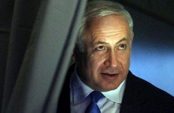26 sept 2017

Israel has refused to stop selling weapons to the military junta in Myanmar, despite recent reports and United Nations data on massacres the country’s government has perpetrated against the Rohingya minority, as well as systematic rape and expulsions.
Responding on Monday to a petition in the High Court of Justice from human-rights activists demanding an end to the arms sales, Shosh Shmueli, representing Israel, said the court should not interfere in Israel’s foreign relations, Haaretz daily said in a Tuesday report.
Eitay Mack, the petitioners' lawyer, noted that the European Union and the United States had imposed a trade embargo on the country formerly known as Burma, and said Israel was the only Western entity supplying weapons to the military junta.
The violence directed at the Rohingya has intensified recently. Some 421,000 members of the Muslim minority have fled to neighboring Bangladesh in the past month, as the UN and others raise concerns of ethnic cleansing.
Israel is keeping its weapons trade with Myanmar under wraps, but the heads of the junta boast of its ties with Israel on their Facebook pages.
In September 2015, Gen. Min Aung Hlaing, the commander of Myanmar’s military, visited Israel and met with Chief of Staff Lt. Gen. Gadi Eisenkot. Hlaing noted on his Facebook page that he had visited various war industries and placed an order for patrol boats.
Brig. Gen. (res.) Michel Ben Baruch, the head of the Israeli Army Ministry’s International Defense Cooperation Directorate — better known by its Hebrew acronym, SIBAT — visited Myanmar in the summer of 2016 and met with heads of the military regime.
Meanwhile, TAR Ideal Concept, an Israeli military company, published pictures on its website last year of training it had conducted with Myanmar’s armed forces.
Responding on Monday to a petition in the High Court of Justice from human-rights activists demanding an end to the arms sales, Shosh Shmueli, representing Israel, said the court should not interfere in Israel’s foreign relations, Haaretz daily said in a Tuesday report.
Eitay Mack, the petitioners' lawyer, noted that the European Union and the United States had imposed a trade embargo on the country formerly known as Burma, and said Israel was the only Western entity supplying weapons to the military junta.
The violence directed at the Rohingya has intensified recently. Some 421,000 members of the Muslim minority have fled to neighboring Bangladesh in the past month, as the UN and others raise concerns of ethnic cleansing.
Israel is keeping its weapons trade with Myanmar under wraps, but the heads of the junta boast of its ties with Israel on their Facebook pages.
In September 2015, Gen. Min Aung Hlaing, the commander of Myanmar’s military, visited Israel and met with Chief of Staff Lt. Gen. Gadi Eisenkot. Hlaing noted on his Facebook page that he had visited various war industries and placed an order for patrol boats.
Brig. Gen. (res.) Michel Ben Baruch, the head of the Israeli Army Ministry’s International Defense Cooperation Directorate — better known by its Hebrew acronym, SIBAT — visited Myanmar in the summer of 2016 and met with heads of the military regime.
Meanwhile, TAR Ideal Concept, an Israeli military company, published pictures on its website last year of training it had conducted with Myanmar’s armed forces.
21 sept 2017

Known as Germany’s deadliest weapons manufacturer, Heckler & Koch will no longer be selling guns to war zones or countries that are corrupt, including Israel, according to the Hebrew newspaper Maariv.
Founded in 1949 Heckler & Koch, a major producer of handguns, military rifles and sub-machine guns, quietly adopted a new policy to make it difficult to obtain export permits from the German government when dealing with a number of countries around the globe.
Countries in the company's current ban include: Israel, Mexico, Brazil, India, Saudi Arabia, Egypt, the United Arab Emirates, Turkey, Malaysia, Indonesia or any African country.
Founded in 1949 Heckler & Koch, a major producer of handguns, military rifles and sub-machine guns, quietly adopted a new policy to make it difficult to obtain export permits from the German government when dealing with a number of countries around the globe.
Countries in the company's current ban include: Israel, Mexico, Brazil, India, Saudi Arabia, Egypt, the United Arab Emirates, Turkey, Malaysia, Indonesia or any African country.
8 sept 2017

Arab members of the Knesset on Friday slammed Israel for its major role in the massacres being carried out by the Myanmar regime and its affiliated gangs against the Muslim minority of Rohingya in Arakan state.
Haaretz newspaper on Wednesday published an article saying that the Israeli government persists in selling arms to the Myanmar army despite the genocides it is committing against Muslims there.
Arab MKs denounced in a statement the "demographic cleansing" targeting the Rohingya Muslims and described it as a war crime and a crime against humanity, calling for prosecuting those responsible.
They demanded the international community to take practical steps to compel the Myanmar government to stop the killing and displacement of the Rohingya people.
Since 25th August, Myanmar's army has been committing genocide against the Rohingya Muslims in Arakan sparking a wave of condemnation around the world, especially among Muslims.
There are no clear statistics on the number of victims, but activist Imran Arakani said in statements to Anadolu Agency that based on their own documentations, 7,354 Muslims have been killed and 6,541 others have been injured since the start of the genocide until Wednesday.
Earlier on Friday, the United Nations High Commissioner for Refugees announced that more than 270,000 Rohingya refugees from Arakan had fled to Bangladesh because of the abuses they had suffered in the past two weeks.
Haaretz newspaper on Wednesday published an article saying that the Israeli government persists in selling arms to the Myanmar army despite the genocides it is committing against Muslims there.
Arab MKs denounced in a statement the "demographic cleansing" targeting the Rohingya Muslims and described it as a war crime and a crime against humanity, calling for prosecuting those responsible.
They demanded the international community to take practical steps to compel the Myanmar government to stop the killing and displacement of the Rohingya people.
Since 25th August, Myanmar's army has been committing genocide against the Rohingya Muslims in Arakan sparking a wave of condemnation around the world, especially among Muslims.
There are no clear statistics on the number of victims, but activist Imran Arakani said in statements to Anadolu Agency that based on their own documentations, 7,354 Muslims have been killed and 6,541 others have been injured since the start of the genocide until Wednesday.
Earlier on Friday, the United Nations High Commissioner for Refugees announced that more than 270,000 Rohingya refugees from Arakan had fled to Bangladesh because of the abuses they had suffered in the past two weeks.
6 sept 2017

Haaretz newspaper on Wednesday revealed that the Israeli ministry of war still refuses to halt weapons sales to Myanmar (Burma) despite the genocides being carried out by Myanmar's regime against the Muslim minority of Rohingya.
The paper said that a senior general from Myanmar's army paid a visit to Israel in September 2015 in which he met with Israeli officials and purchased military equipment, pointing out that the successive Israeli governments have been selling arms to "the military dictatorship in Burma" for years.
It affirmed that arms deals between Israel and Myanmar are in full swing despite the embargo imposed by the United States and Europe on weapon sales to the regime there.
The Myanmar army has been waging a genocide against Rohingya Muslims in Arakan since 25th August. Based on preliminary statistics released by the European Rohingya Council on 28th August, between 2,000 and 3,000 Muslims were killed in just three days.
United Nations High Commissioner for Refugees announced on Monday that more than 87,000 Rohingyas have fled from Arakan to the neighboring Bangladesh.
The paper said that a senior general from Myanmar's army paid a visit to Israel in September 2015 in which he met with Israeli officials and purchased military equipment, pointing out that the successive Israeli governments have been selling arms to "the military dictatorship in Burma" for years.
It affirmed that arms deals between Israel and Myanmar are in full swing despite the embargo imposed by the United States and Europe on weapon sales to the regime there.
The Myanmar army has been waging a genocide against Rohingya Muslims in Arakan since 25th August. Based on preliminary statistics released by the European Rohingya Council on 28th August, between 2,000 and 3,000 Muslims were killed in just three days.
United Nations High Commissioner for Refugees announced on Monday that more than 87,000 Rohingyas have fled from Arakan to the neighboring Bangladesh.
13 july 2017
AARON MATÉ: It’s the Real News. I’m Aaron Maté. A bribery scandal in Israel could engulf Prime Minister Benjamin Netanyahu. Six Israelis linked to Netanyahu have been detained for questioning. Israeli police are looking into potential corruption in a controversial purchase of German submarines. At the center is David Shimron, Netanyahu’s personal lawyer. Shimron was said to be representing ThyssenKrupp, the German company that sold submarines and naval patrol craft to Israel in a $2 billion deal. Israel’s Channel 10 reports that it is has proof Shimron used his ties to Netanyahu to lobby for that sale. Shimron was among those detained along with other Netanyahu associates, including former government officials.The controversy has dominated Israeli headlines and fueled anti-corruption protests. Shir Hever is a real correspondent, and he joins me now. Shir, welcome.
SHIR HEVER: Thank you, Aaron.
AARON MATÉ: Thanks for joining me. Shir, talk about this latest corruption case potentially engulfing Netanyahu.
SHIR HEVER: The Israeli police call it case 3000. It’s about an arms purchase from ThyssenKrupp, the Germany company, which is not just for the submarines but also for patrol ships. The Israeli Navy wanted to obtain five attack submarines from any kind of company that would sell them, and ThyssenKrupp actually didn’t make the lowest offer. They got a better offer from South Korea, but Prime Minister Netanyahu intervened and demanded that the Israeli Navy will not buy five submarines but nine, and that they will buy them from ThyssenKrupp. He said, “We have to go about this deal very quickly because the German chancellor, Angela Merkel, supports the deal. There are elections in Germany in September, and if she is not reelected, then the deal is in danger.”
That is the context of why the Israeli government was pushing for this deal with ThyssenKrupp.The question, of course, is whether ThyssenKrupp has paid a bribe to Israeli officials in order to promote the deal, which officials, and if Netanyahu is so deeply and personally involved, was he one of the recipients? The former head of the navy of Israel is one of the people detained on Monday, and also his bank accounts were frozen in order to investigate what kind of money he received from ThyssenKrupp, if at all. Indeed, there are reports that he told ThyssenKrupp that unless they appoint a very specific mediator, called Miki Ganor, who was a very close friend of Benjamin Netanyahu, to be the mediator in the deal and receive a very exorbitant commission of about 2%, and when we’re talking about a $2 billion deal, this is a lot of money, if they don’t accept him as a mediator, the deal is off.
AARON MATÉ: Okay. Ganor, this guy Miki Ganor, the intermediary, he is also represented by the same lawyer as Netanyahu, David Shimron, who I mentioned before, who has also been detained for questioning. Can you talk about Shimron’s role here and what Israel’s Channel 10 now says he did, in terms of they say they have an email proving his connection to the German arms company?
SHIR HEVER: It all revolves around the question of who know what. Netanyahu asserts that he knew nothing about the details of the deal, but when you have this direct connection through the lawyer David Shimron, and who at first said he had no idea who the mediator is, and had no direct contact with ThyssenKrupp, but now this email, there is evidence or at least alleged evidence that he had a direct connection to ThyssenKrupp. That would mean that he knew exactly it’s Miki Ganor who has been selected by ThyssenKrupp to be the mediator, and it makes it very unlikely and very unbelievable that Netanyahu didn’t know about it.Miki Ganor himself is not a very remarkable person, but Netanyahu has insisted to appoint him to Israel’s National Security Council. The head of the Israeli National Security Council, the former head, is also among the six people being detained because he’s also under suspicion of receiving a bribe from ThyssenKrupp, allegedly. That means that there was a whole conspiracy of senior Israeli officials, all of them rather close to Netanyahu, and David Shimron is the one accused of organizing it and getting everybody to cooperate with each other.
AARON MATÉ: You mentioned that the police are calling this case 3000, but there’s also the cases 1000 and 2000. Can you talk about those and the context of these multiple corruption scandals that Netanyahu faces?
SHIR HEVER: Right. In the Israeli political tradition, if charges are pressed against an acting prime minister, he must resign. This happened, actually, to former Prime Minister Olmert in 2008. He had to resign. Charges were pressed against him. Eventually, he was convicted of receiving bribery, and only this July he was released from jail after serving 16 months. Netanyahu is dreading that kind of eventuality, but he is trying to continue appearances that everything is fine.Case 1000, which the police began investigating quite a long time ago, is about various presents that the Netanyahu family received, not just [inaudible 00:06:18] but also his wife and son, from various international millionaires and billionaires.
These are various luxury items like champagne and cigars, and also hotel stays and travel costs, that they received from these billionaires. Netanyahu is not denying the fact that the presents have been given, but he says, “Friends are allowed to give gifts to their friends.”The problem of course is whether they received anything in return, and it appears that there is very clear evidence that the Netanyahu family actually dictated to these billionaires what they wanted and when. Now there is also evidence that at least one of those billionaires received preferential tax treatment by the Israeli tax authorities. If that is the case, that already shows a quid pro quo relationship. In fact, senior members of the Israeli police leaked that they intend to recommend that presses will be charged against Netanyahu on that case, on case 1000, even though of the three cases it’s actually the smallest one.
Case 2000 is much bigger, and that relates to Netanyahu allegedly coordinating with the chief editor of the newspaper Yedioth Ahronoth, one of the two largest newspapers in Israel, telling him that he’s going to curb the newspaper Israel Hayom, which is also one of the two largest Israeli newspapers in Israel, and is a very pro-Netanyahu newspaper, funded by American billionaire Sheldon Adelson. Netanyahu will tell Adelson, “Stop with the newspaper or sell or give away fewer copies, and in exchange,” Yedioth Ahronoth will change their coverage and give more favorable coverage to Netanyahu.There was a conversation between Netanyahu and the chief editor. It was recorded, and parts of it were released. That certainly paints him in a very bad light, and this is a corruption case that is worth not tens of thousands of dollars, like the presents case, but hundreds of thousands or even millions. Even the case 2000 is small in terms of money compared to case 3000, which is this $2 billion deal of attack submarines and the patrol boats.
AARON MATÉ: Shir, finally, Netanyahu has been around for a while. He was first elected prime minister in the mid-’90s and reelected multiple times. How are all these corruption cases being received right now inside Israel? Do they stand to impact his political future?
SHIR HEVER: I think it says a lot about the Israeli political culture that corruption cases regarding money and luxury items and even the media are not really getting a lot of attention in the Israeli public. There are some demonstrations. There are some calls for Netanyahu to resign, but all in all, this is not a direct threat to his government. When it comes to security, that’s where people are less flexible. When they hear that in fact the minister of defense was opposed to buying nine submarines and wanted to use the money for other things, and to hear that the navy didn’t think that they should buy the boats and the submarines from such an expensive provider like ThyssenKrupp but should actually buy them from a cheaper source, then that creates more outrage.At the moment, there are constant demonstrations against the Israeli state attorney, Avichai Mandelblit. The state attorney actually has the final say.
Even if the police say, “We want to press charge,” only Avichai Mandelblit can make the decision. He has been postponing and delaying that decision for over eight months now. People are very angry, and Mandelblit is a close friend of Netanyahu and very loyal to him, but there’s so much that he can get away with. If at some point he decides to press charges, that will probably spend the end of the Netanyahu administration. Within Netanyahu’s own party, no one dares to contemplate that eventuality. Within the Likud Party that Netanyahu rules, he has absolute control. There is no dissenting voices within his party. At least, nobody dares to say anything out loud. There are some other parties which are now starting to raise their heads a little bit, and are already starting to contemplate that if this corruption case or at least one of the three will reach a point of pressing charges, then they should get ready to form the next government.
AARON MATÉ: Shir, I’m sorry to nitpick here, but I just want to say that when you say that Israelis are sensitive about security, I have to put the word security in quotes, because it’s questionable whether billions of dollars on submarines really is about Israeli security versus simply its own military goals, whatever they are. Your thoughts on that?
SHIR HEVER: That is right. Nobody can make the case, there is no Israeli general or admiral who can explain to the public how could nine attack submarines possibly help protect Israeli security. There is no conceivable scenario that this actually has to do with security.
AARON MATÉ: A criticism that I think extends to many of Israel’s policies over the years when it comes to military activities. We’ll leave it there, though. Shir Hever, Real News correspondent. Thanks very much.
SHIR HEVER: Thank you, Aaron.
AARON MATÉ: Thank you for joining us on the Real News.
SHIR HEVER: Thank you, Aaron.
AARON MATÉ: Thanks for joining me. Shir, talk about this latest corruption case potentially engulfing Netanyahu.
SHIR HEVER: The Israeli police call it case 3000. It’s about an arms purchase from ThyssenKrupp, the Germany company, which is not just for the submarines but also for patrol ships. The Israeli Navy wanted to obtain five attack submarines from any kind of company that would sell them, and ThyssenKrupp actually didn’t make the lowest offer. They got a better offer from South Korea, but Prime Minister Netanyahu intervened and demanded that the Israeli Navy will not buy five submarines but nine, and that they will buy them from ThyssenKrupp. He said, “We have to go about this deal very quickly because the German chancellor, Angela Merkel, supports the deal. There are elections in Germany in September, and if she is not reelected, then the deal is in danger.”
That is the context of why the Israeli government was pushing for this deal with ThyssenKrupp.The question, of course, is whether ThyssenKrupp has paid a bribe to Israeli officials in order to promote the deal, which officials, and if Netanyahu is so deeply and personally involved, was he one of the recipients? The former head of the navy of Israel is one of the people detained on Monday, and also his bank accounts were frozen in order to investigate what kind of money he received from ThyssenKrupp, if at all. Indeed, there are reports that he told ThyssenKrupp that unless they appoint a very specific mediator, called Miki Ganor, who was a very close friend of Benjamin Netanyahu, to be the mediator in the deal and receive a very exorbitant commission of about 2%, and when we’re talking about a $2 billion deal, this is a lot of money, if they don’t accept him as a mediator, the deal is off.
AARON MATÉ: Okay. Ganor, this guy Miki Ganor, the intermediary, he is also represented by the same lawyer as Netanyahu, David Shimron, who I mentioned before, who has also been detained for questioning. Can you talk about Shimron’s role here and what Israel’s Channel 10 now says he did, in terms of they say they have an email proving his connection to the German arms company?
SHIR HEVER: It all revolves around the question of who know what. Netanyahu asserts that he knew nothing about the details of the deal, but when you have this direct connection through the lawyer David Shimron, and who at first said he had no idea who the mediator is, and had no direct contact with ThyssenKrupp, but now this email, there is evidence or at least alleged evidence that he had a direct connection to ThyssenKrupp. That would mean that he knew exactly it’s Miki Ganor who has been selected by ThyssenKrupp to be the mediator, and it makes it very unlikely and very unbelievable that Netanyahu didn’t know about it.Miki Ganor himself is not a very remarkable person, but Netanyahu has insisted to appoint him to Israel’s National Security Council. The head of the Israeli National Security Council, the former head, is also among the six people being detained because he’s also under suspicion of receiving a bribe from ThyssenKrupp, allegedly. That means that there was a whole conspiracy of senior Israeli officials, all of them rather close to Netanyahu, and David Shimron is the one accused of organizing it and getting everybody to cooperate with each other.
AARON MATÉ: You mentioned that the police are calling this case 3000, but there’s also the cases 1000 and 2000. Can you talk about those and the context of these multiple corruption scandals that Netanyahu faces?
SHIR HEVER: Right. In the Israeli political tradition, if charges are pressed against an acting prime minister, he must resign. This happened, actually, to former Prime Minister Olmert in 2008. He had to resign. Charges were pressed against him. Eventually, he was convicted of receiving bribery, and only this July he was released from jail after serving 16 months. Netanyahu is dreading that kind of eventuality, but he is trying to continue appearances that everything is fine.Case 1000, which the police began investigating quite a long time ago, is about various presents that the Netanyahu family received, not just [inaudible 00:06:18] but also his wife and son, from various international millionaires and billionaires.
These are various luxury items like champagne and cigars, and also hotel stays and travel costs, that they received from these billionaires. Netanyahu is not denying the fact that the presents have been given, but he says, “Friends are allowed to give gifts to their friends.”The problem of course is whether they received anything in return, and it appears that there is very clear evidence that the Netanyahu family actually dictated to these billionaires what they wanted and when. Now there is also evidence that at least one of those billionaires received preferential tax treatment by the Israeli tax authorities. If that is the case, that already shows a quid pro quo relationship. In fact, senior members of the Israeli police leaked that they intend to recommend that presses will be charged against Netanyahu on that case, on case 1000, even though of the three cases it’s actually the smallest one.
Case 2000 is much bigger, and that relates to Netanyahu allegedly coordinating with the chief editor of the newspaper Yedioth Ahronoth, one of the two largest newspapers in Israel, telling him that he’s going to curb the newspaper Israel Hayom, which is also one of the two largest Israeli newspapers in Israel, and is a very pro-Netanyahu newspaper, funded by American billionaire Sheldon Adelson. Netanyahu will tell Adelson, “Stop with the newspaper or sell or give away fewer copies, and in exchange,” Yedioth Ahronoth will change their coverage and give more favorable coverage to Netanyahu.There was a conversation between Netanyahu and the chief editor. It was recorded, and parts of it were released. That certainly paints him in a very bad light, and this is a corruption case that is worth not tens of thousands of dollars, like the presents case, but hundreds of thousands or even millions. Even the case 2000 is small in terms of money compared to case 3000, which is this $2 billion deal of attack submarines and the patrol boats.
AARON MATÉ: Shir, finally, Netanyahu has been around for a while. He was first elected prime minister in the mid-’90s and reelected multiple times. How are all these corruption cases being received right now inside Israel? Do they stand to impact his political future?
SHIR HEVER: I think it says a lot about the Israeli political culture that corruption cases regarding money and luxury items and even the media are not really getting a lot of attention in the Israeli public. There are some demonstrations. There are some calls for Netanyahu to resign, but all in all, this is not a direct threat to his government. When it comes to security, that’s where people are less flexible. When they hear that in fact the minister of defense was opposed to buying nine submarines and wanted to use the money for other things, and to hear that the navy didn’t think that they should buy the boats and the submarines from such an expensive provider like ThyssenKrupp but should actually buy them from a cheaper source, then that creates more outrage.At the moment, there are constant demonstrations against the Israeli state attorney, Avichai Mandelblit. The state attorney actually has the final say.
Even if the police say, “We want to press charge,” only Avichai Mandelblit can make the decision. He has been postponing and delaying that decision for over eight months now. People are very angry, and Mandelblit is a close friend of Netanyahu and very loyal to him, but there’s so much that he can get away with. If at some point he decides to press charges, that will probably spend the end of the Netanyahu administration. Within Netanyahu’s own party, no one dares to contemplate that eventuality. Within the Likud Party that Netanyahu rules, he has absolute control. There is no dissenting voices within his party. At least, nobody dares to say anything out loud. There are some other parties which are now starting to raise their heads a little bit, and are already starting to contemplate that if this corruption case or at least one of the three will reach a point of pressing charges, then they should get ready to form the next government.
AARON MATÉ: Shir, I’m sorry to nitpick here, but I just want to say that when you say that Israelis are sensitive about security, I have to put the word security in quotes, because it’s questionable whether billions of dollars on submarines really is about Israeli security versus simply its own military goals, whatever they are. Your thoughts on that?
SHIR HEVER: That is right. Nobody can make the case, there is no Israeli general or admiral who can explain to the public how could nine attack submarines possibly help protect Israeli security. There is no conceivable scenario that this actually has to do with security.
AARON MATÉ: A criticism that I think extends to many of Israel’s policies over the years when it comes to military activities. We’ll leave it there, though. Shir Hever, Real News correspondent. Thanks very much.
SHIR HEVER: Thank you, Aaron.
AARON MATÉ: Thank you for joining us on the Real News.
12 july 2017

Israeli Police detained for questioning Attorney David Shimron, a close associate of Prime Minister Benjamin Netanyahu in the ongoing investigation of corruption charges regarding contracts to acquire German-made submarines and ships, termed Case 3000, Jerusalem Post reported Wednesday.
Shimron, who is Netanyahu’s personal lawyer and distant relative, was released to house arrest on Monday and questioned a second time on Tuesday, according to Jerusalem Post.
Questions over the submarine deal surfaced in November, with a Channel 10 report that Shimron worked as an intermediary for Miki Ganor, the Israel representative of the German shipbuilder ThyssenKrupp. Shimron is reportedly suspected of pushing to buy submarines worth some $1.5 billion from the German firm over the objections of the defense establishment, including then war minister Moshe Ya’alon.
Shimron was detained on Monday along with six other suspects including: the former deputy head of the National Security Council retired Brig. Gen. Avriel Bar-Yosef; Ganor; and attorney Ronen Shemer who works with Ganor. Police said Shimron along with the six other suspects were detained on suspicion of bribery, fraud, money laundering and tax offenses.
Shimron has previously denied any wrongdoing in the case. Netanyahu has also denied any involvement in the deal with ThyssenKrupp.
Police also detained former OC Navy V.-Adm. (res.) Eliezer Merom on Tuesday. Marom, who has been chairman of the Israel Airports Authority since 2015, was questioned as a suspect at the offices of the Lahav 433 National Crime Unit in Lod beginning early Tuesday morning and released to house arrest that night.
Maron is suspected of receiving bribe money from Miki Ganor, the Israel representative of the German shipbuilder ThyssenKrupp, Channel 2 reported. Marom commanded the navy from 2007 to 2011.
In February, Attorney-General Avichai Mandelblit authorized a full-blown criminal investigation into the submarine affair, saying that police had gathered enough evidence to raise suspicions “that some of those involved in the affair committed crimes of public corruption.”
In June, Der Spiegel reported that the German National Security Council approved the purchase of the three submarines by Israel, subsidized by Berlin. However, the contract reportedly includes a clause giving Berlin the right to cancel the deal if any improprieties or criminal offenses are proven as a result of the current police investigation.
Shimron, who is Netanyahu’s personal lawyer and distant relative, was released to house arrest on Monday and questioned a second time on Tuesday, according to Jerusalem Post.
Questions over the submarine deal surfaced in November, with a Channel 10 report that Shimron worked as an intermediary for Miki Ganor, the Israel representative of the German shipbuilder ThyssenKrupp. Shimron is reportedly suspected of pushing to buy submarines worth some $1.5 billion from the German firm over the objections of the defense establishment, including then war minister Moshe Ya’alon.
Shimron was detained on Monday along with six other suspects including: the former deputy head of the National Security Council retired Brig. Gen. Avriel Bar-Yosef; Ganor; and attorney Ronen Shemer who works with Ganor. Police said Shimron along with the six other suspects were detained on suspicion of bribery, fraud, money laundering and tax offenses.
Shimron has previously denied any wrongdoing in the case. Netanyahu has also denied any involvement in the deal with ThyssenKrupp.
Police also detained former OC Navy V.-Adm. (res.) Eliezer Merom on Tuesday. Marom, who has been chairman of the Israel Airports Authority since 2015, was questioned as a suspect at the offices of the Lahav 433 National Crime Unit in Lod beginning early Tuesday morning and released to house arrest that night.
Maron is suspected of receiving bribe money from Miki Ganor, the Israel representative of the German shipbuilder ThyssenKrupp, Channel 2 reported. Marom commanded the navy from 2007 to 2011.
In February, Attorney-General Avichai Mandelblit authorized a full-blown criminal investigation into the submarine affair, saying that police had gathered enough evidence to raise suspicions “that some of those involved in the affair committed crimes of public corruption.”
In June, Der Spiegel reported that the German National Security Council approved the purchase of the three submarines by Israel, subsidized by Berlin. However, the contract reportedly includes a clause giving Berlin the right to cancel the deal if any improprieties or criminal offenses are proven as a result of the current police investigation.
30 june 2017

German newspaper Der Spiegel reports Germany approved submarine deal with Israel, despite accusations of wrongdoing in deal leveled against PM's personal laywer; Germany reportedly inserts clause into contract, giving it the right to tear it up if corruption allegations are proven.
Germany's national security council has approved a deal to sell three further nuclear-capable submarines to Israel, magazine Der Spiegel reported on Friday, the latest act in a defence deal that has been overshadowed by corruption allegations.
The $1.5 billion transaction came to public attention when it emerged that shipbuilder ThyssenKrupp Marine Systems' Israeli intermediary had retained Prime Minister Benjamin Netanyahu's personal lawyer David Shimron to act on his behalf.
The deal is now being scrutinised by authorities in both countries. The paper said Germany had inserted a clause into the contract giving it the right to tear it up if corruption allegations were proven.
Der Spiegel gave no source for its information. Ministry officials were unable to comment immediately.
Israel already has five submarines of the Dolphin Class, which can be equipped with nuclear warheads. A sixth is being built. Germany has agreed to finance a third of the costs of the contract.
Last February, it was reported that Israel Police would be turning "Case 3000," which deals in corruption allegations regarding the purchase of IDF submarines from German conglomerate ThyssenKrupp into a full, criminal investigation.
Once the case becomes a full-fledged criminal investigation, Prime Minister Benjamin Netanyahu's personal lawyer, David Shimron, businessman Miki Ganor (another client of Shimron's) and former commander of the Israeli Navy Vice Admiral Eliezer "Chiney" Marom (who headed the Navy between 2007 – 2011) are all also due to be questioned by the police.
Israel's Justice Ministry, while not naming any suspects in the investigation, said there was no evidence that Netanyahu was involved. This comes in direct opposition to reports that former defense minister Moshe Ya'alon had told police of Netanyahu's direct involvement in the purchasing of the submarines and the tender bias in favor of German conglomerate. Ya'alon reportedly provided investigators with detailed information on the talks Netanyahu had with German government officials both for the purchase of three new submarines and for the purchase of anti-submarine warships for the Israeli Navy—without consulting the defense establishment.
Israel's submarine deal with Germany includes two main parts: The acquisition of three submarines and the signing of a contract for long-term maintenance work with the German shipyard that is represented by Israeli businessman Miki Ganor. It is the latter contract that would be more profitable to Ganor, according to defense officials.
Germany's national security council has approved a deal to sell three further nuclear-capable submarines to Israel, magazine Der Spiegel reported on Friday, the latest act in a defence deal that has been overshadowed by corruption allegations.
The $1.5 billion transaction came to public attention when it emerged that shipbuilder ThyssenKrupp Marine Systems' Israeli intermediary had retained Prime Minister Benjamin Netanyahu's personal lawyer David Shimron to act on his behalf.
The deal is now being scrutinised by authorities in both countries. The paper said Germany had inserted a clause into the contract giving it the right to tear it up if corruption allegations were proven.
Der Spiegel gave no source for its information. Ministry officials were unable to comment immediately.
Israel already has five submarines of the Dolphin Class, which can be equipped with nuclear warheads. A sixth is being built. Germany has agreed to finance a third of the costs of the contract.
Last February, it was reported that Israel Police would be turning "Case 3000," which deals in corruption allegations regarding the purchase of IDF submarines from German conglomerate ThyssenKrupp into a full, criminal investigation.
Once the case becomes a full-fledged criminal investigation, Prime Minister Benjamin Netanyahu's personal lawyer, David Shimron, businessman Miki Ganor (another client of Shimron's) and former commander of the Israeli Navy Vice Admiral Eliezer "Chiney" Marom (who headed the Navy between 2007 – 2011) are all also due to be questioned by the police.
Israel's Justice Ministry, while not naming any suspects in the investigation, said there was no evidence that Netanyahu was involved. This comes in direct opposition to reports that former defense minister Moshe Ya'alon had told police of Netanyahu's direct involvement in the purchasing of the submarines and the tender bias in favor of German conglomerate. Ya'alon reportedly provided investigators with detailed information on the talks Netanyahu had with German government officials both for the purchase of three new submarines and for the purchase of anti-submarine warships for the Israeli Navy—without consulting the defense establishment.
Israel's submarine deal with Germany includes two main parts: The acquisition of three submarines and the signing of a contract for long-term maintenance work with the German shipyard that is represented by Israeli businessman Miki Ganor. It is the latter contract that would be more profitable to Ganor, according to defense officials.
9 mar 2017

The Israeli Occupation Forces (IOF) are preparing for two major deals with the US, including the procurement of aircraft designed to renew its stock of warplanes and transportation helicopters, Israeli media sources revealed Thursday.
Most of the money for the procurement will come from $3.33 billion US aid money allocated for the F-35 projects and missile inventory, the sources pointed out.
The exact budget for buying the planes will become clear only after the budget is divided in the framework of the Gideon multi-year plan and the beginning of implementation of the new aid agreement in 2018.
For a long time, the IOF had wanted to replace its F-15s, manufactured by Boeing, with a better version of the aircraft equipped with an advanced active electronically scanned array (AESA) radar system. This aircraft does not have stealth capabilities, but it can carry larger payloads, has advanced attack capabilities, and is operated by a two-man crew, which is an advantage in complex missions. The twin-engine warplane can continue operating even when one of the engines is disabled.
The new F-15s cost $100 million a plane. They are more advanced than the F-15s purchased from the US by Saudi Arabia and Qatar in recent years.
Israel insisted that the US refrain from selling the new version to Qatar in order to maintain the Israeli air force's superiority in the Middle East, but former President Barack Obama disagreed and approved the sale of 72 of the aircraft just before he left office.
Since it first flew 40 years ago, the F-15 has undergone upgrades and facelifts. It is classified as a "strategic bomber."
Most of the money for the procurement will come from $3.33 billion US aid money allocated for the F-35 projects and missile inventory, the sources pointed out.
The exact budget for buying the planes will become clear only after the budget is divided in the framework of the Gideon multi-year plan and the beginning of implementation of the new aid agreement in 2018.
For a long time, the IOF had wanted to replace its F-15s, manufactured by Boeing, with a better version of the aircraft equipped with an advanced active electronically scanned array (AESA) radar system. This aircraft does not have stealth capabilities, but it can carry larger payloads, has advanced attack capabilities, and is operated by a two-man crew, which is an advantage in complex missions. The twin-engine warplane can continue operating even when one of the engines is disabled.
The new F-15s cost $100 million a plane. They are more advanced than the F-15s purchased from the US by Saudi Arabia and Qatar in recent years.
Israel insisted that the US refrain from selling the new version to Qatar in order to maintain the Israeli air force's superiority in the Middle East, but former President Barack Obama disagreed and approved the sale of 72 of the aircraft just before he left office.
Since it first flew 40 years ago, the F-15 has undergone upgrades and facelifts. It is classified as a "strategic bomber."
28 feb 2017

Israeli prosecutor Shai Nitzan decided late Monday to open a criminal investigation into Israel's purchase of three submarines from a German company, Haaretz Hebrew newspaper revealed on Tuesday.
An inquiry into Israel's purchase of three submarines from a German company will now be a criminal investigation, Nitzan announced Monday, although Israel’s Prime Minister Benjamin Netanyahu is not a suspect, the paper wrote.
“The decision was made based on information collected by the police during the inquiry in recent months, and in light of evidence raising a reasonable suspicion against some of those involved in the affair of committing public bribery offenses,” Nitzan's office stated.
Nitzan based his decision in part on the opinion of Attorney General Avichai Mendelblit, according to the sources.
The main suspicion is that David Shimron, Netanyahu’s cousin and personal lawyer, represented Michael Ganor, a representative of ThyssenKrupp.
The German company recently signed a memorandum of understanding to build three submarines for the Israeli navy. Netanyahu had initially pushed for the navy to add three new submarines to its fleet, and Israel negotiated with ThyssenKrupp in 2015. Additionally, Netanyahu sought to acquire two anti-submarine boats.
Israeli Army Minister Moshe Ya’alon opposed expanding the fleet to nine, as well as the anti-submarine boat acquisition, and the matter was dropped. Last October, the Israeli cabinet approved the replacement of three old submarines with the new ones.
An inquiry into Israel's purchase of three submarines from a German company will now be a criminal investigation, Nitzan announced Monday, although Israel’s Prime Minister Benjamin Netanyahu is not a suspect, the paper wrote.
“The decision was made based on information collected by the police during the inquiry in recent months, and in light of evidence raising a reasonable suspicion against some of those involved in the affair of committing public bribery offenses,” Nitzan's office stated.
Nitzan based his decision in part on the opinion of Attorney General Avichai Mendelblit, according to the sources.
The main suspicion is that David Shimron, Netanyahu’s cousin and personal lawyer, represented Michael Ganor, a representative of ThyssenKrupp.
The German company recently signed a memorandum of understanding to build three submarines for the Israeli navy. Netanyahu had initially pushed for the navy to add three new submarines to its fleet, and Israel negotiated with ThyssenKrupp in 2015. Additionally, Netanyahu sought to acquire two anti-submarine boats.
Israeli Army Minister Moshe Ya’alon opposed expanding the fleet to nine, as well as the anti-submarine boat acquisition, and the matter was dropped. Last October, the Israeli cabinet approved the replacement of three old submarines with the new ones.
26 feb 2017

An Israeli Likud-party minister on Saturday claimed that the Israeli army is developing terminator robots that will be capable of entering enemies territory to assassinate resistance leaders, Hebrew media reported on Sunday.
“The robot is able to implement accurate assassinations based on advanced targeting technology”, the minister-without-portfolio Ayoub Kara said, while speaking at a cultural event in the southern city of Beersheba in 1948 Occupied Palestine.
"Did anyone believe there would be Iron Dome five or ten years ago? Did anyone believe it would be possible to launch a Qassam rocket and someone will be able to get rid of it and destroy it in the air?" Kara questioned.
In addition to carrying out high-level assassinations, Kara said that the robotic soldiers would be able to enter attack tunnels and chase resistance fighters and eliminate them.
Such a robot, Kara said, would be "indestructible", claiming it would be made from special material.
Kara refused to elaborate any further, saying he did not want to be entangled again in controversy.
“The robot is able to implement accurate assassinations based on advanced targeting technology”, the minister-without-portfolio Ayoub Kara said, while speaking at a cultural event in the southern city of Beersheba in 1948 Occupied Palestine.
"Did anyone believe there would be Iron Dome five or ten years ago? Did anyone believe it would be possible to launch a Qassam rocket and someone will be able to get rid of it and destroy it in the air?" Kara questioned.
In addition to carrying out high-level assassinations, Kara said that the robotic soldiers would be able to enter attack tunnels and chase resistance fighters and eliminate them.
Such a robot, Kara said, would be "indestructible", claiming it would be made from special material.
Kara refused to elaborate any further, saying he did not want to be entangled again in controversy.

